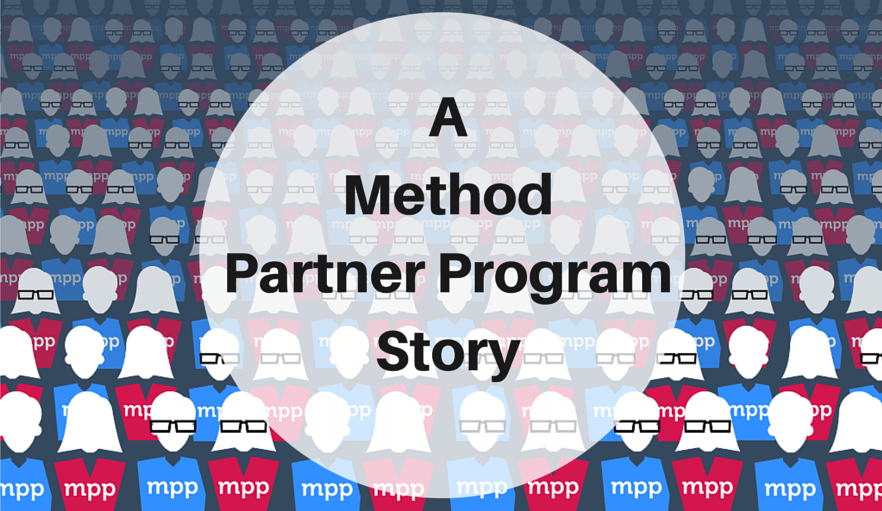Accounting is about so much more than crunching numbers. Taking on tasks like keeping customers out of financial hot water, guidance on cost reductions, and forecasting trends, accountants keep businesses in business.
Beyond this, you help your clients better understand their businesses and their respective industries. So whether you’re a bookkeeper or an advisor, CRM software for accounting firms is a powerful tool that helps simplify your workflows.
How? With all the tasks you need to do every day to service your clients, a CRM automates a lot of that work, allowing you to focus on big picture solutions for your clients.
In this blog, you’ll learn some tips on what to look for in CRM software for accounting. But first, let’s take a look at some of the software you already use.
What software do accounting firms use?
As an accountant, you’re used to working with accounting software daily. But with so many contacts, appointments, and other things to do, you’re also probably using a range of other solutions.
Some of those tools likely include:
- A calendar for scheduling tasks and meetings.
- Financial dashboards and bookkeeping tools.
- A time tracker for billable hours.
- File sharing tools to help with collaboration.
- Invoicing software.
- Spreadsheets for financial analysis and forecasting reports.
In today’s competitive environment, new innovative applications are developed every day. In fact, QuickBooks found that accounting professionals spend 86% of their time on tasks that could be automated.
“86% of accountants spend time on tasks that could be automated.”
— QuickBooks, 2017.
While the word “automation” may be scary to some, it doesn’t mean that eventually accounting will become obsolete. Far from it.
Automation boosts your efficiency by freeing you from manual tasks like data entry. It allows you to spend your time on more lucrative endeavors like sales activities and growth opportunities.
How cloud accounting software can help your accounting firm
Cloud solutions have reshaped the accounting industry. Now, you might ask, “What is cloud computing?”… Well, it’s the data storage and access over the Internet instead of on your physical hard drive.
A SaaS (Software as a Service) model allows your staff to access their software from anywhere in the world and view the same information for easier collaboration.
Furthermore, SaaS solutions come in different sizes, subscription plans, and pricing options. So, cloud-based business systems are suitable for any company – from small B2B organizations to larger companies.
And while this technology has been around for a while, cloud computing has empowered accountants with hundreds of cloud-based apps, especially software focussed on accounting, finances, and analytics.
Many bookkeepers choose accounting software such as QuickBooks Online to track their expense, make better budget plans, and more. With categories for every aspect of your finances, it’s easy to streamline your operations with a cloud accounting system.
Some benefits of integrating a cloud accounting system with your business operations include:
- You can access your accounting data from multiple locations and devices.
- Your financial information updates in real-time so your team always has accurate data.
- Your overhead is lower as you can scale up the number of licenses you need seamlessly.
Is cloud software safe for accountants?
A concern accountants may have with cloud accounting services is privacy and security. With an obligation to keep client data secure, especially their finances and confidential contact information, accountants have to ask themselves, “Is cloud accounting software safe?”
And this question is more than valid. Especially when you consider that FBI reporting showed close to 4,000 cyberattacks a day on businesses, government sites, and medical companies during the pandemic.
The good news is that cloud-based accounting software provides a few security advantages over desktop-based accounting. The first is that data is encrypted between your device and the cloud server, so it’s difficult for third party users to intercept it.
Second, keeping your data offsite reduces the risk of it being compromised if your devices are stolen or physically damaged — since they’re not in the same location. Finally, a cloud service acts as a backup for your data in case your devices are lost, stolen, breached, or broken.
Now that we’ve discussed the benefits of cloud accounting software, let’s look at how your accounting company can improve your client relationships and sales with a cloud CRM for accountants.
What is CRM in accounting?
In a nutshell, a customer relationship management (CRM) software uses technology to augment traditional customer service. You can store and access client data in one centralized location, which improves the way you interact with your clients. Better customer interactions and communication ultimately lead to stronger customer relationships and improved loyalty.
What can a CRM do for your accounting firm?
What’s great is that the benefits of CRM software for accounting firms are widespread. Here are a few examples of how using a CRM can fuel your firm’s prosperity.
With an accounting CRM, you:
- Better serve your clients with a self-service online client portal.
- Gain insight on your sales pipeline and marketing performance in just a few clicks.
- Easily capture details of your prospects from your website visitors.
- Get a 360-degree view of every customer, from leads to repeat purchasers.
- Maximize your productivity by automating tedious tasks.
With a powerful CRM, you can simplify many aspects of your accounting practice and grow your list of clients.
How this is possible will become clear as you learn the top CRM features accountants should look for in this next section.
What accountants need to look for in a CRM
Of course, not all CRM programs are created specifically for accountants. To help you navigate the process of selecting a CRM solution for your company, check out these key points that any accounting CRM should have. Feel free to scroll to the bottom for the TL:DR version of these seven essential CRM features for accountants.
1. The most important feature — Integrating accounting and CRM software
This is a big one.
As an accountant, you understand the value of a self-serve portal to get a clear view of your client’s transactions. Having all of this data on hand allows you to provide consistent, professional accounting services to keep you ahead of the competition.
The logical step is to choose CRM software that integrates with your existing accounting software, such as QuickBooks. This allows you to enter new client or transaction information in either program and have it automatically sync to the other.
With everything from transaction history to past interactions compiled in one place, you’ll have a single system that covers every aspect of your relationship with each client. No more trying to filter your information, backtrack, and double-check figures or dates, which is time-consuming and tedious. Taking advantage of this integration makes your entire workflow more efficient.
2. Streamlined client onboarding
Whenever your accounting firm brings on new people, they should go through an onboarding process. This ensures your client is aware of the tasks and timelines they are responsible for while you’re providing accounting services. Everyone is on the same page, saving you time and your client money.
Look for a CRM platform that allows you to set up and organize your client onboarding strategy. Features such as document management, email templates, and scheduled reminders help ensure that every new client receives the same information on the same timeline. The more you can automate the process, the better the experience for both you and your clients.
3. Improved client management
When you set up a CRM system, it goes without saying that it will store all of your client information.
However, it’s important to make sure that everyone on your team can easily access and update this information. Here are some questions to guide you through your selection decisions:
- Is the CRM cloud-based?
- Does this CRM allow for anywhere, anytime access?
- Is this CRM mobile-friendly enough to support teams that are typically on the go?
- Is your team comfortable with the user interface? Does the software offer a demo?
By choosing a program that all your departments are comfortable with, you’ll reduce common errors in data entry and communication.
As time passes, one of the biggest benefits of better client management is gaining more clients organically.
Managing client information in a CRM helps you improve relationships through more personalized service. As a result, your satisfied clients are willing to provide you with free marketing through reviews, word-of-mouth, and referrals. This boosts your revenue, which increases your ROI in choosing a CRM as your business management solution.
4. Easier client communications
In general, accountants have different types of secure communication with clients, such as email and video chat. But do you have a way to keep track of all of these emails and conversations over time? If not, implementing CRM software gives you this valuable tool for customer service. It sends out notifications to your team the second a service request is received.
By maintaining a detailed history of communications in your CRM, you can refer back to this information at any time. This also improves your sales process as your client history is readily available, and your sales reps no longer waste time digging through old files and documents.
This way, your team can seamlessly take care of clients without having to backtrack for information. Your clients will appreciate this attention to detail, which will put them at ease. As a result, your clients will end each exchange with your accounting firm satisfied.
Moreover, by automating sales processes and deals, a CRM streamlines client communications and ensures that no opportunities are missed. With sales automation in place, accountants can focus on servicing clients.
5. Client self-sufficiency
Are you looking for ways to get more hours out of your workday as an accountant? If yes, then look for CRM software that includes tools for building self-sufficiency among your clients. A great example of this is a CRM that offers built-in self-serve portals, which give your clients more options for accessing your business.
For those of you new to portals, this video gives a quick overview.
Your clients can view their transaction history, quotes, and invoices, resulting in fewer calls and emails to you. Some CRMs also enable billing and payment gateways directly within these portals, which reduces the administrative costs on your team.
Aside from making faster payments, a CRM allows clients to sign contracts using digital signatures (or e-signatures) to approve documents quicker. Even better, it saves you from printing checks when making payments on orders from your vendors.
6. Brand-building tools
Whether you’re a small business owner or you work at a large manufacturing enterprise, your company’s branding matters. Branding is much more than the name, logo, or design of your product or service. It’s about developing a personal relationship between your client and your product or service.
As an accountant, your personal and professional brand follows you throughout your career. Think of it as a walking calling card for your accounting services.
When doing your research on choosing the right CRM, consider whether it has tools to help you build your accounting brand. It’s helpful to think about the various touchpoints you would like to reach your clients through.
One way to build your accounting brand is by sharing resources with your clients. Let’s say you have a digital article or notes about the latest tax code that you want to pass along. If your CRM makes it easy to share content with clients (for example, through email marketing campaigns or another marketing automation tool), you can position yourself as a thought leader. This increases your brand visibility, as well as client confidence in your products and services.
7. Customization of automated workflows
As an accountant, you handle a huge number of repetitive entries and tasks every day. So, wouldn’t it be wonderful if you could automatically complete certain tasks.
This is the concept behind using a CRM with flexible workflow automation.
For example, accounting CRM software automates order status tracking, enabling you to easily monitor the progress of your orders. You can also implement other processes such as document storage, inventory management, and equations with custom CRM software.
Equipped with a CRM that works the way you do, you can control and update your workflows as desired to meet the changing needs of your accounting firm.
Recap: The importance of a CRM for accountants
You may spend your days in the office crunching numbers, but your focus is ultimately on customer service. Being able to provide your clients with the best services to meet their financial needs is essential.
Using a CRM for accountants can help you save your firm time and money that is better spent elsewhere.
CRM software also gives you the tools required to better maintain your client relationships. So instead of getting sidetracked by missing data, you always have a clear picture of every client.
To review, these are the key features you should look for in a CRM:
- The ability to integrate with your accounting software.
- Functionality that streamlines your client onboarding process.
- A simplified approach to client management.
- The ability to easily communicate and track interactions with your clients.
- Portals for greater client self-sufficiency.
- Brand building capabilities.
- Flexible workflow automation for your repetitive entries and tasks.
As you consider whether to invest in a CRM for your accounting firm, take a moment to consider the cost of inefficient, ineffective customer service. Chances are, the benefits of a great CRM platform will outweigh the investment.
Ready to take your accounting firm to the next level? Start your free trial of Method:CRM — the #1 QuickBooks CRM.
Image credit: Art_Photo via Adobe Stock






